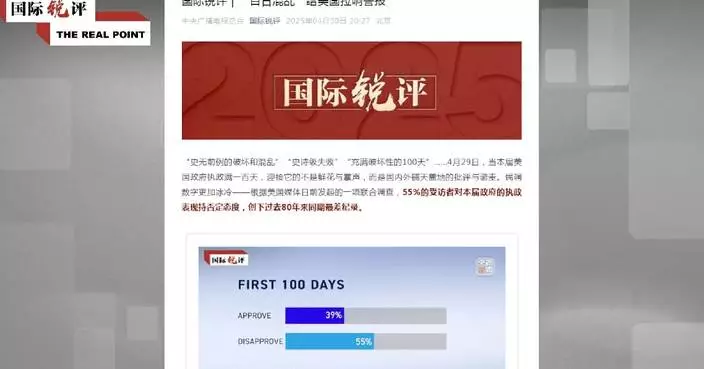Dozens of leading economists, including two Nobel laureates, have signed a declaration criticizing U.S. President Donald Trump's tariff policy, according to Business Insider, an online news magazine specializing in financial and business news. The declaration, which calls the tariff policy "misguided" and warns it could cause a "self-inflicted recession", had been signed by over 1,000 people as of 08:30 GMT Sunday. It also warns the timeline is narrowing to undo the Trump administration's "incoherent and damaging policies" on trade. The signatories criticized the "reciprocal" tariffs, saying they're calculated using an erroneous formula with no basis in economic reality. However, they still expressed the optimism that sound economic principles, empirical evidence, and the warnings of history will prevail.

Leading economists sign declaration criticizing US tariff policy: Business Insider
Multiple leading U.S. corporations delivered disappointing figures in their quarterly financial reports Thursday as uncertainty about President Donald Trump's erratic tariffs and cautious consumer spending clouded their outlook.
Apple estimated that 900 million U.S. dollars could be added to its costs in the quarter ending in June if rates do not change. The Cupertino-based tech giant's shares fell 3.8-percent following the release of its quarterly results.
Amazon issued weaker-than-expected guidance for the second quarter. Analysts at Goldman Sachs warn that levies could reduce Amazon's operating profits by 5 to 10 billion U.S. dollars this year. The Seattle-based e-commerce giant engaged in forward buying of inventory before additional tariffs on Chinese imports were imposed, as roughly 25-percent of its sold items are imported from China.
McDonald's reported its steepest decline in the U.S. sales since the COVID pandemic, with same-store sales dropping 3.6 percent year on year in the first quarter. Analysts note a 10-percent decline in fast food visits by low- and middle-income diners during the quarter, signaling broader economic concerns.

Leading US companies report disappointing quarterly financial figures





















































